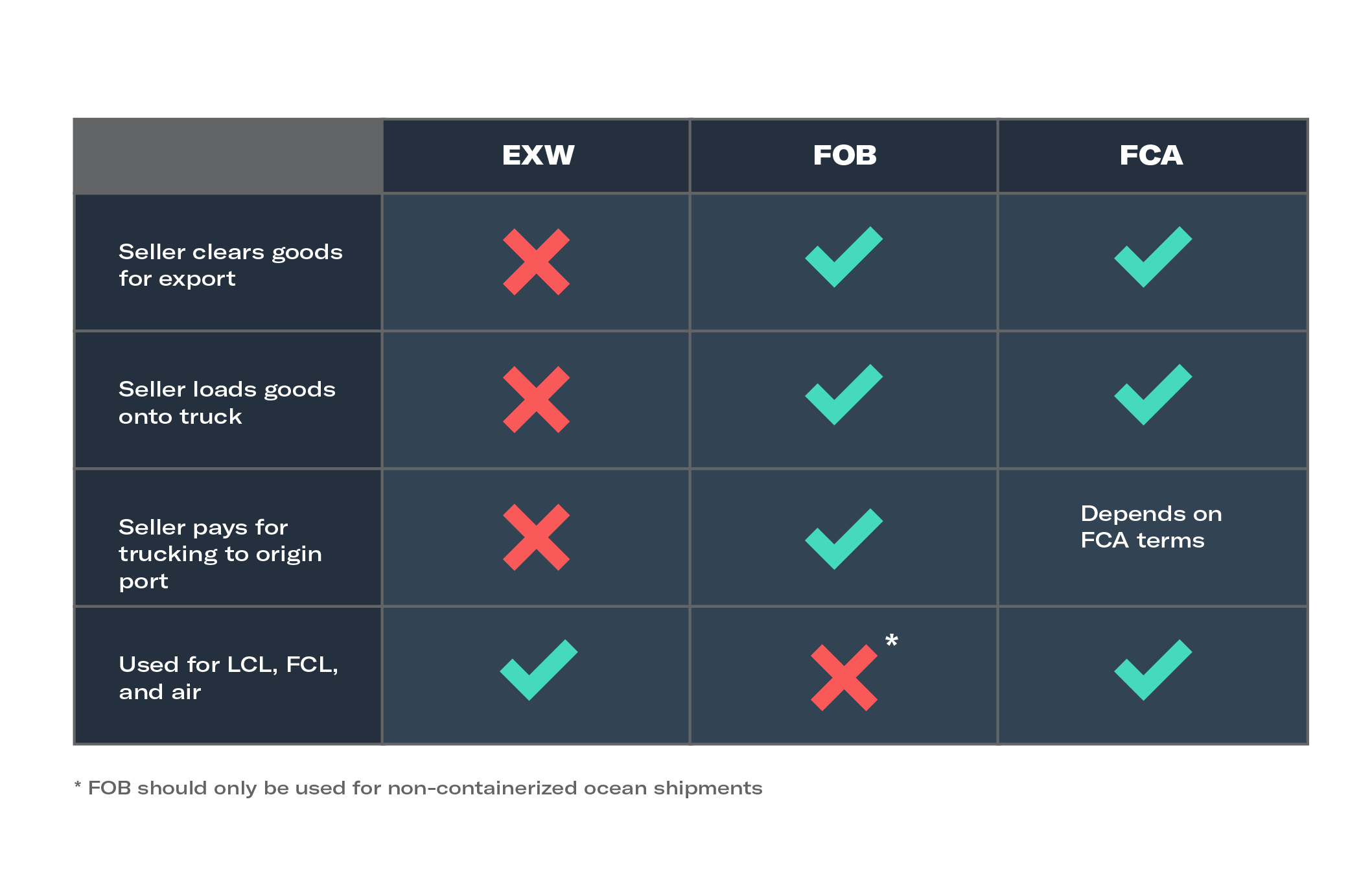Help Center Article
Why Should You Ship Under FCA Incoterms®?
FCA will offer the best cost and risk allocation for a containerized shipment and requires that the seller export the goods for clearance.
Why Should You Ship Under FCA Incoterms®?
If you are a buyer purchasing goods from a foreign manufacturer and shipping them internationally, FCA (Free Carrier) will likely be the most appropriate incoterm for your shipment.
Commonly used Incoterms® (per Incoterms® 2010) for international shipments are FCA (Free Carrier), FOB (Free on Board), and EXW (Ex Works), but FCA is the best option for the importer:

Why is FCA preferred over FOB?
FOB is not suitable for containerized shipments. FOB terms state that the seller must deliver the goods on board the ocean vessel, but most cargo is shipped in containers that must be dropped off at a CY or stuffed at a CFS before a carrier can load them onto the vessel. Unless the seller owns the port of origin, they can’t deliver the cargo straight to the vessel.
If cargo delivering to a CY or CFS under FOB terms is damaged in transit, the question of buyer/seller responsibility may be disputed at the buyer’s expense and time.
The ICC (International Chamber of Commerce), per the 2010 revision, designed the incoterm FCA to accommodate the containerization of modern shipping. Under FCA terms, the seller and the buyer may agree to have the buyer pick up the goods at the seller’s premises or another named location (e.g. CFS or CY).
However, as there were still some issues with the use of FCA, the recently published Incoterms® 2020 introduced an extra provision to the FCA incoterm: Parties can now agree that the buyer must instruct the carrier to issue to the seller, at the buyer’s cost and risk, a transport document stating that the goods have been loaded. Then, the seller is obligated to provide such transaction document to buyer.
Why is FCA preferred over EXW?
FCA terms dictate that export clearance and the loading of the goods (if the buyer is picking up at the seller’s premises) are the seller’s responsibility.
Under EXW terms, the buyer has to clear their own goods for export, which can be costly, time-consuming, and difficult if the buyer is unfamiliar with the country’s export regulations. The seller also isn’t responsible for loading the goods onto the transport provided by the buyer, because EXW only requires that the seller makes the goods available for pickup. The seller may be in a better position to load the goods, but the buyer is still responsible for the cost and risk.
It is ultimately up to the buyer and the seller to agree on each party's responsibility of cost and risk before the shipment begins.
